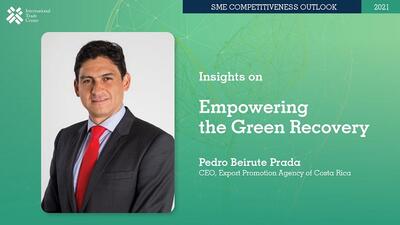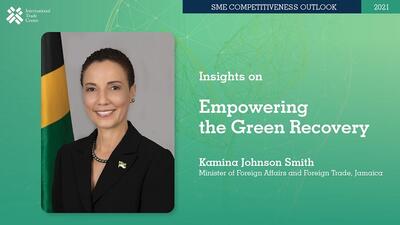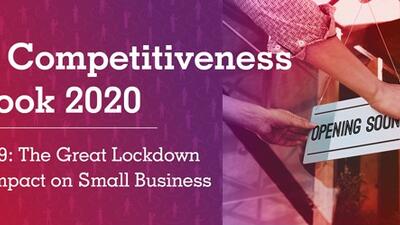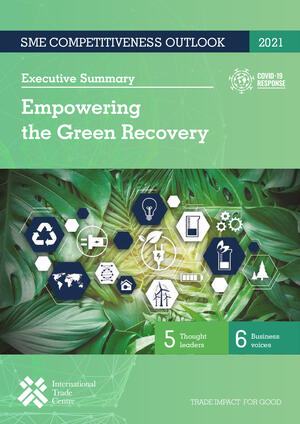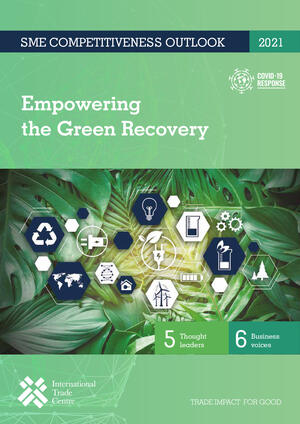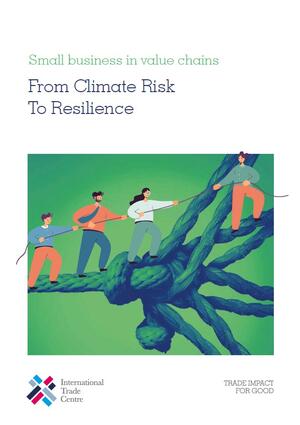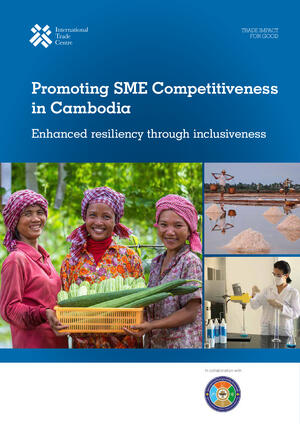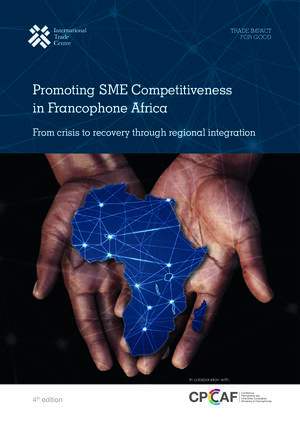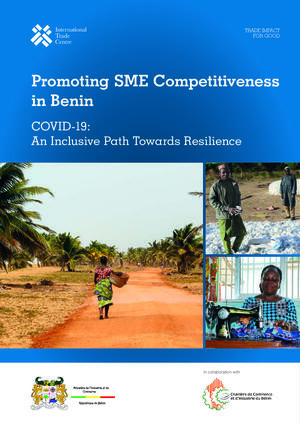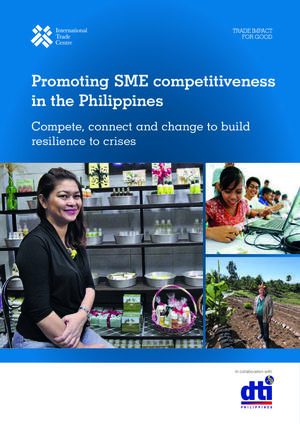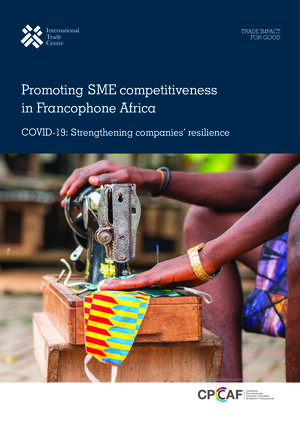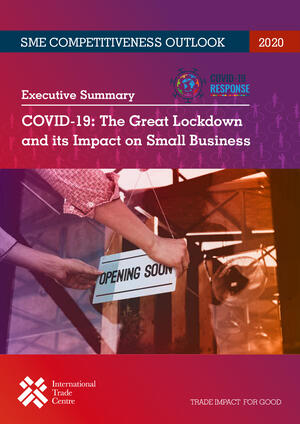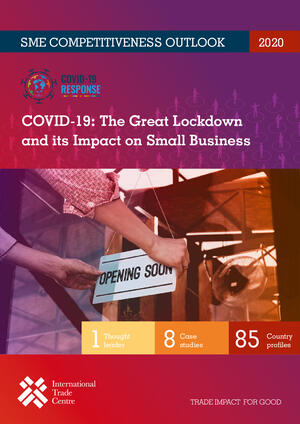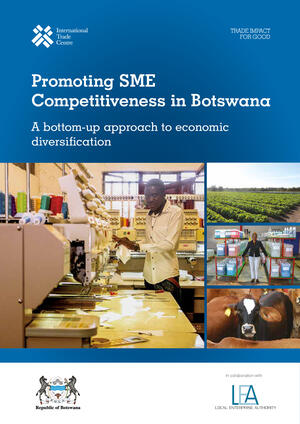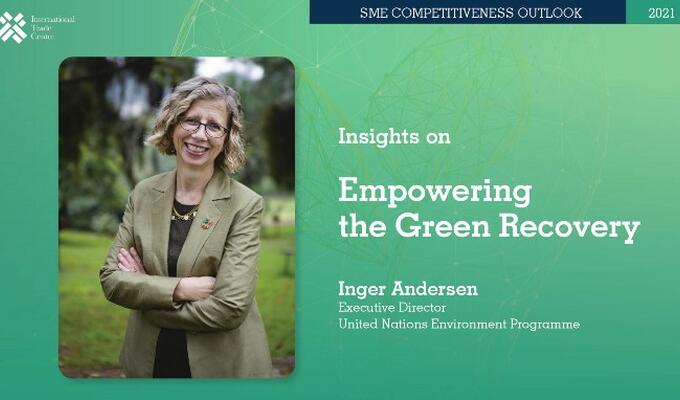
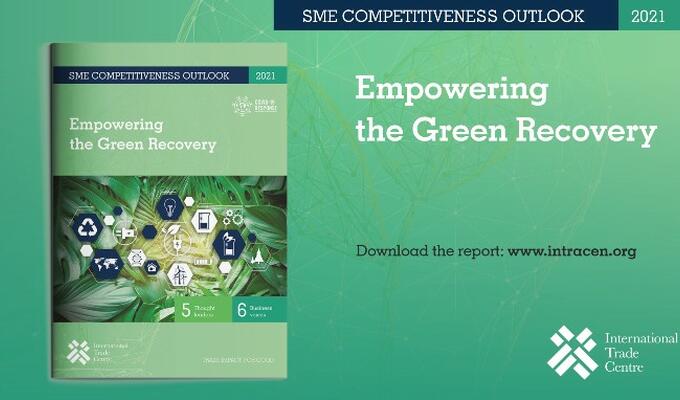
Green recovery: Small businesses, embrace circularity to survive, says UN Environment head
Eliminating waste and pollution will benefit small businesses most, and this transition to circular business models will protect them against regulatory and market shocks, says Inger Andersen, Executive Director, United Nations Environment Programme. Governments must help by creating the right environment for change.
The world has learned many lessons from the COVID-19 pandemic, but none more important than this: we must change the way we run our businesses and economies to work with nature, not against it.
We brought this devastation upon ourselves by treating nature and its services as an expendable and endless commodity, destroying natural buffers and coming into closer contact with wild animals and the diseases they carry.
This same unsustainable consumption and production is driving climate change, biodiversity loss and pollution – all of which carry greater potential for human misery and economic disruption. To break this cycle, and ensure long-term prosperity, we have to move to circular economies in which we eliminate waste and pollution by keeping products and materials in use and regenerating natural systems.
Small businesses will be crucial to – and the biggest beneficiaries of – this shift. Most businesses in the world are small and medium-sized businesses. Given their strong roots in local communities, they can be influential agents of change and innovation. Value chains, like biodiversity, exist in complex and interlinked ecosystems. Small changes in one area can lead to amplified changes elsewhere.
The pandemic has shown how vulnerable small businesses are to global shocks. They are overrepresented in the sectors most affected by the crisis, particularly in wholesale and retail trade, air transport, accommodation and food services, real estate, professional services and other personal services. Small businesses are 8% more likely to have shut down temporarily than larger firms. They are 9% more likely to experience a fall in sales than large firms. The longer the crisis persists, the more likely that decreased liquidity will translate into insolvency and firm exit.
Making the business case
UNEP has helped small businesses face these challenges through our eco-innovation approach. This guides small businesses in incorporating circularity into every aspect of business models, operations, strategy, products and processes to reduce the environmental and social impact of human activity. It results in an agile, reactive and competitive company.
We have seen that businesses tend to benefit significantly by adopting more circular business models. For instance, one personal care product company in Colombia moved to 100% natural products, which increased sales. Employees felt greater loyalty to the company and worked harder during COVID-19 to ensure the company survived.
When companies transition to circular business models, they protect themselves against regulatory shocks, market changes, inefficient technical capacity, limited revenue streams and narrow financing options. Instrumental to this transition are networks such as the Global Network for Resource Efficient and Cleaner Production, which works with local networks of small businesses to provide training, expertise and skills to implement eco-innovation.
Deep roots lead to circular systems
Small businesses can only transition to circular business models as part of a wider economic shift that values circularity, with governments actively promoting such a transition. UNEP already is working with partners to ensure that the right conditions exist to support circular business models, and the International Trade Centre’s efforts in this area are highly appreciated. The SME Competitiveness Outlook will be key in furthering this drive and making the business case for resilient, circular and truly eco-innovative small businesses.
It is a joint endeavour. Governments must shape the environment in favour of circular business models and increase public sector funding to leverage private sector resources. Consumers must continue demanding eco-innovative products and services from the market. Multinational enterprises must expand and deepen their work. International organizations such as UNEP must continue to promote initiatives that increase the sustainability and the competitiveness of small businesses.
From the Global Alliance on Circular Economy and Resource Efficiency (launched in February 2021 at the UN Environment Assembly 5.1 with some 39 countries on board) to a one-person small business, all efforts are important.
The benefits are clear. More competitive small businesses. More safe and decent jobs. More resilience to shocks. And more progress towards tackling all three planetary crises.
This article has been drawn from the International Trade Centre’s flagship report, SME Competitiveness Outlook 2021. It takes on the theme of empowering the green recovery, showing how small businesses can rebuild to prepare for the looming climate crisis.
Small firms generate more than 50% of jobs and greenhouse gas emissions, so their resilience matters: Resilient companies were five times less likely to lay off employees during the pandemic, and more likely to have stable sales, according to new data in the report.
What’s more, small firms are the backbone of communities everywhere. Putting them at the heart of a green recovery can hasten the cultural and economic transformation required in times of climate change.
While small firms can help drive the green recovery, they can't do it alone. Business support organizations, governments, lead firms and international organizations have to provide incentives for small firms to lead the green transition. This report provides a 20-point Green Recovery Plan for key players to help small businesses become more competitive, resilient and green.






